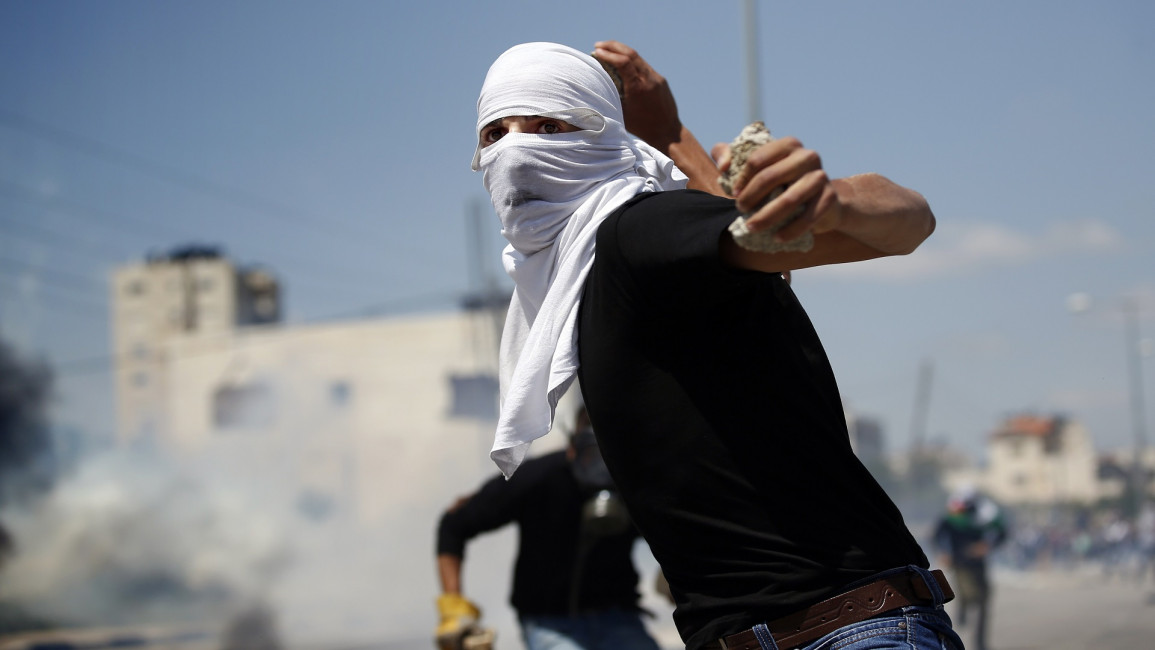
The lone Palestinian fighter
There is no doubt that the phenomenon of the lone resistance fighter poses a new challenge to Israeli authorities. The Israeli internal security agency, Shin Bet, has admitted the failure of collective punishment and now calls for "surgical operations" against individuals and spying on Palestinians on social media.
At the same time, individual operations in Jerusalem over recent weeks, such as the deadly attack on a synagogue, are evidence of the absence of the leadership and organisation that is needed to advance and sustain any Palestinian resistance movement.
This new phenomenon may well produce new leaders, and even new organisations. But conditions are not favourable for the emergence of alternatives to the PLO or Hamas and the process could take some time. But I hope this is a new beginning for the Palestinian resistance.
Actions by lone Palestinians underscore the failure of the established organisations, after the signing of the Oslo agreement, to consolidate their role and extend it to Palestinian society.
Armed Palestinian factions, who led the struggle for decades, have lost much of their appeal and credibility among the new generation. It does not know, or is not aware, of the history of the Palestinian movement, and find itself alone in confronting a cruel and aggressive occupation.
A majority of the new generation, and even many in the older generations, believe the resistance organisations are too busy squabbling over power and positions of authority, and have little time for the actual cause.
A forgotten history
In addition, there is an alarming absence among many Palestinians, outside and inside the historic land of Palestine, of the history of the Palestinian resistance. This is a direct consequence of the post-Oslo agreements which robbed Palestinians from learning that history.
The history of the PLO, or even TV programmes on the Palestinian struggle, are often described as "incitement" by Israeli officials, who consider them a violation of the Oslo accords and subsequent agreements.
This lack of awareness obstructs a continuity of the resistance movement that builds on previous experiences and undermines of the faith of many Palestinian in organised action - they see only the failures and cannot see or remember the successes.
| A majority of the new generation... believe the resistance organisations are too busy squabbling over power. |
The concentration of the individual actions in Jerusalem, in particular, in the past few weeks is also the result of the physical and the psychological isolation of the city, and the failure by the Palestinian Authority and other organisations to provide even minimal leadership and protection to those who are the target of a continuing Israeli process of eviction and Judaisation.
Israel has succeeded, to an important extent, in achieving its goals in fragmenting the Palestinian population and their resistance. The young people of Jerusalem, perhaps because of being under direct Israeli jurisdiction and without any Palestinian Authority control, find themselves in direct confrontation with the occupation army, as nothing separates them from the Israeli soldiers other than their bodies and their will.
Leading by example
By effectively and courageously challenging the Israeli army, they provide a model for other young Palestinians, unifying people and crossing the falsely drawn "borders"; These young people unite the idea of resistance and their activity all over the land of Palestine, and they return us to an earlier era of Palestinian resistance.
Yet at the same time, there is real danger that the absence of a political framework could make it easy for Israel to deal fatal blows to this emerging resistance - isolating the young people and leaving them without the support of a popular movement or a political organisation.
It is true that Israeli security services are finding it difficult to stop this phenomenon: they can't target an organisation that has a known structure and leadership, and they can't read intentions in Palestinian hearts and minds, even if they monitor social media.
This means armed operations will likely spread without planning and coordination, a matter that no intelligence apparatus with its advanced technology can easily address.
However, if this individual action is not accompanied by a popular movement, it will not lead to a viable resistance behind which Palestinians can unite.
This returns us to the consequences of the absence of the PLO, which found itself thrown under the wheels of the Oslo agreement and the so called Israeli-Palestinian security coordination.
The recent attacks are a sign that the Palestinian people are ready for a new intifada - and its impetus has been sparked more from anger at failed leaderships than it is from Israeli strategies of oppression.
Opinions expressed in this article remain those of the original author and do not necessarily reflect the opinions of al-Araby al-Jadeed, its editorial board or staff.
This is an edited translation from our Arabic edition.




